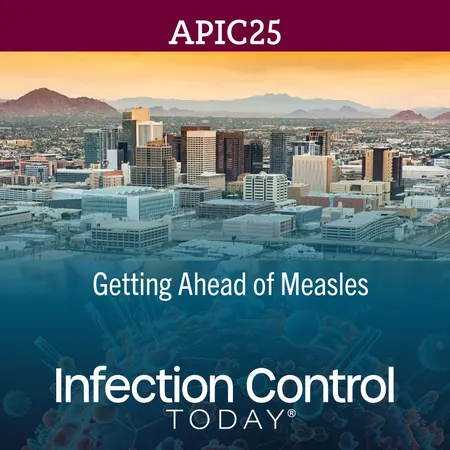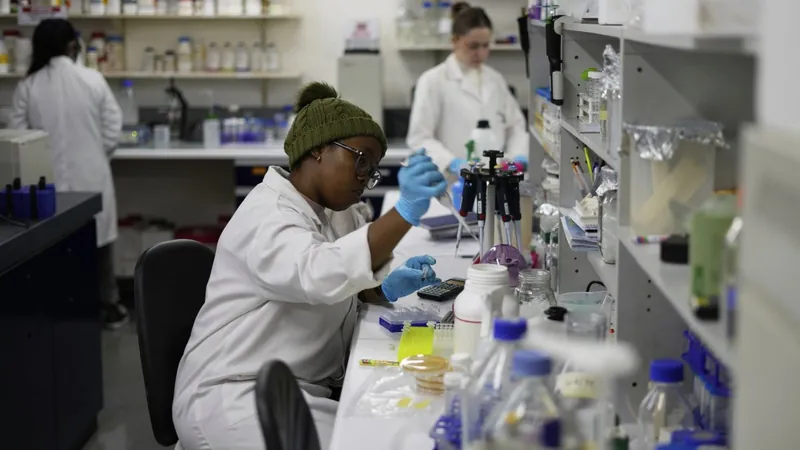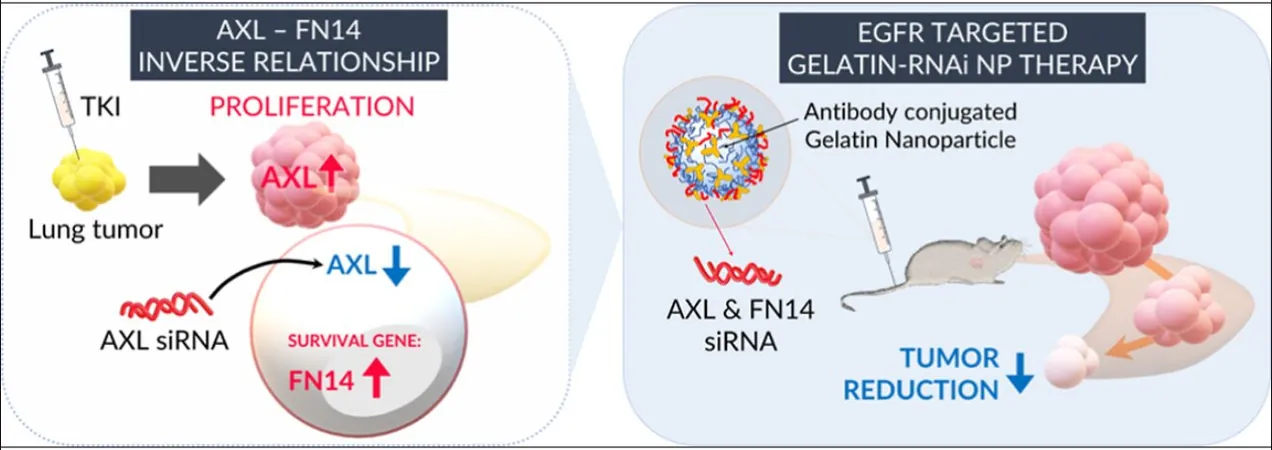
Swift Protocol Shields Chicago Children’s Hospital from Measles Outbreak
2025-06-16
Author: Mei
In a startling reminder of how quickly disease can spread, the recent measles outbreak in Chicago highlighted just how contagious this virus truly is—able to infect the unsuspecting within mere hours of exposure. But one major pediatric hospital has struck back with a groundbreaking response strategy that has kept its patients and staff safe.
A Race Against Time: The Protocol Unfolds
After Chicago confirmed its outbreak in March 2024, the infection prevention and control (IPC) team at Ann and Robert H. Lurie Children’s Hospital sprang into action. Within days, they created a rapid-response protocol ensuring every single inpatient, caregiver, and staff member remained measles-free.
Collaboration Beats Confusion
Speed was their ally. The IPC team collaborated with the emergency department and immediate-care clinics to draft a standard operating procedure (SOP) that directed frontline staff to swiftly identify, isolate, and inform about suspected cases. This protocol was designed to eliminate any delay in response for children arriving with fever, rash, or potential exposure.
Communication is Key
Realizing that guidelines alone wouldn't suffice against an outbreak, the hospital prioritized constant communication. Weekly virtual meetings with the city's Department of Public Health tracked the virus's spread and ensured staff were always equipped with the latest information and risk assessments.
Educating to Protect
Understanding the importance of education, the hospital provided clinicians with pocket cards, posters, and quick e-modules. These resources offered critical instructions on conducting tests, administering life-saving vitamin A, and coordinating post-exposure prophylaxis for at-risk patients. The materials evolved as the outbreak progressed, often being updated multiple times a week.
Impressive Outcomes Amid the Crisis
From March to April 2024, Chicago witnessed 64 confirmed measles cases, and 17 children who met exposure criteria were directed to the hospital. These patients were immediately masked and isolated upon entrance. Out of the eleven tested, six ultimately tested positive—but thanks to the quick response, no hospital-associated transmissions occurred. This success is attributed to strict adherence to their rapidly adaptable SOP and seamless real-time data sharing.
A Blueprint for Future Crises
The hospital has since compiled its SOP, educational materials, and response meetings into a comprehensive toolkit. This adaptable algorithm can readily pivot to tackle other airborne threats, proving invaluable for future outbreaks. The key takeaway? Speed and collaboration among healthcare providers are essential when facing fast-spreading viruses like measles.





 Brasil (PT)
Brasil (PT)
 Canada (EN)
Canada (EN)
 Chile (ES)
Chile (ES)
 Česko (CS)
Česko (CS)
 대한민국 (KO)
대한민국 (KO)
 España (ES)
España (ES)
 France (FR)
France (FR)
 Hong Kong (EN)
Hong Kong (EN)
 Italia (IT)
Italia (IT)
 日本 (JA)
日本 (JA)
 Magyarország (HU)
Magyarország (HU)
 Norge (NO)
Norge (NO)
 Polska (PL)
Polska (PL)
 Schweiz (DE)
Schweiz (DE)
 Singapore (EN)
Singapore (EN)
 Sverige (SV)
Sverige (SV)
 Suomi (FI)
Suomi (FI)
 Türkiye (TR)
Türkiye (TR)
 الإمارات العربية المتحدة (AR)
الإمارات العربية المتحدة (AR)